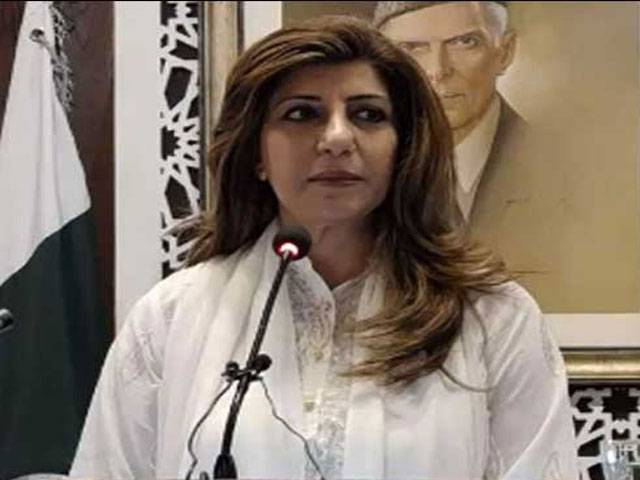ISLAMABAD - Pakistan yesterday said it did not want to completely cut diplomatic ties with India or escalate the situation.
Speaking at a weekly news briefing here, Foreign Office spokesperson Aisha Farooqui said Pakistan had always reacted with restraint.
“However, violation of diplomatic norms by Indian officials in Islamabad and India’s continued belligerent attitude is a threat to regional peace and security. The latest Indian action to reduce the Pakistani High Commission’s staff strength by 50% is a part of India’s desperate attempts to divert attention from its state-terrorism and worst human rights violations in Indian occupied Jammu and Kashmir,” she said.
Pakistan, she said, had been consistently sensitizing the world community that irresponsible policies of the Indian government were increasingly imperilling regional peace and stability.
Aisha Farooqui said India would be better advised to focus on its internal and external issues, rather than creating diversions at the cost of peace and stability in South Asia.
The spokesperson said Pakistan has been consistently sensitizing the world community that irresponsible policies of the Indian government were increasingly imperilling regional peace and stability.
She said Pakistani diplomats and officials had always functioned within the parameters of international law and diplomatic norms.
The spokesperson categorically rejected and strongly condemned the baseless allegations made by the Indian Ministry of External Affairs as a pretext to seek 50 percent reduction in the staff strength of the High Commission for Pakistan in New Delhi.
She strongly condemned the unabated extra-judicial killings of Kashmiri youth by the Indian occupation forces in Indian occupied Jammu and Kashmir.
She said that the Indian occupation forces had killed more than 110 innocent Kashmiris during the past five months.
“The BJP leadership must realize that it is directly responsible for these politically motivated, arbitrary killings of Kashmiris by the Indian security forces,” she added.
Aisha Farooqui said that on the Line of Control, ceasefire violations by Indian security forces continued unabated.
She said India has committed 1440 ceasefire violations in these six months, resulting in 13 shahadats and serious injuries to 104 innocent civilians.
To a question, she said Pakistan believed that the peace process had reached a critical stage following signing of the US-Taliban Peace Agreement. We hope that the release of prisoners will be completed as agreed in the US-Taliban Peace Agreement at the earliest to pave the way for the start of Intra-Afghan Negotiations.
She said that Chief of Army Staff Qamar Javed Bajwa visited Afghanistan on June 9. During the visit, he met President Ashraf Ghani and Chairman High Council for National Reconciliation of Afghanistan Dr. Abdullah Abdullah.
“Talks were held on a wide range of issues of mutual interest, which are being closely followed up,” she elaborated.
Aisha Farooqui said that Mohammad Sadiq, Special Representative for Afghanistan, visited Doha on 16-17 June.
During his visit, Mohammad Sadiq met Taliban leaders to discuss peace and reconciliation process in Afghanistan.
On Palestine, she said, Pakistan has consistently supported a two-state solution, as enshrined in the relevant United Nations Security Council and General Assembly Resolutions.
To a question, Pakistan’s position is clear and consistent. “We believe matters related to Xinjiang are China’s internal affairs,” she added.
She said two officials of the Indian High Commission in Islamabad, Dwimu Brahma and Selvadas Paul were over-speeding and crashed their car into a pedestrian on 15 June 2020 and were released after they were confirmed as diplomats.
The spokesperson says election of India to the UN Security Council has raised fundamental questions. “India stands in flagrant violation of several resolutions of the Security Council that mandate a UN-supervised plebiscite to enable the people of Indian Occupied Jammu and Kashmir to exercise their fundamental right to self-determination. Furthermore, India has border disputes with all its neighbouring countries,” the spokesperson said.






